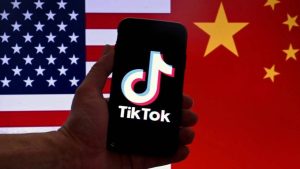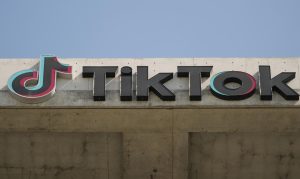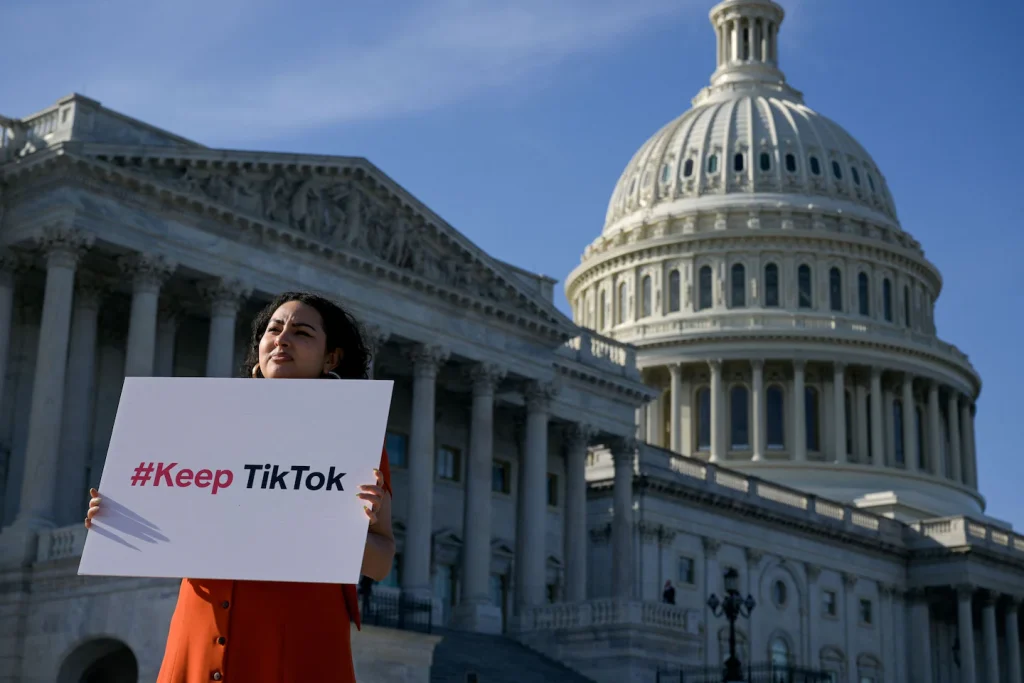The wildly popular social media site TikTok, which has come to be associated with viral video material, is presently resolving a convoluted legal dispute in the US that could establish precedents. TikTok, which is owned by ByteDance, a significant participant in the global internet industry with headquarters in China, has gained attention in the geopolitical arena as a result of a recent legislative measure that President Joe Biden signed into law. This rule, which calls for a ban unless TikTok’s Chinese partners give up ownership, poses a serious danger to the company’s activities in the United States. Important concerns concerning free speech, privacy, national security, and the future of foreign tech activities within U.S. borders are brought up by this judicial dispute.

The Genesis of the Legal Battle
TikTok has moved for an injunction to stop the new law’s enforcement in response to the legislation, claiming that it infringes on the company’s and its users’ constitutional rights. The lawsuit alleges that the rule violates TikTok’s First Amendment rights to free speech and unfairly punishes the company under the pretext of national security. TikTok’s approach highlights a resolute effort to safeguard both its commercial interests and the interests of its sizable user base in the US.
Constitutional Challenges and Foreign Ownership
TikTok’s defense primarily relies on the First Amendment’s protection of the freedom to free speech. According to the platform, millions of Americans use it as a forum for sharing information and expressing themselves. However, TikTok’s existence as a foreign-owned company makes this argument less persuasive. Historically, American courts have been hesitant to provide foreign corporations full constitutional rights, particularly where matters pertaining to national security are involved. Experts like Jamil Jaffer, who points out that foreign corporations typically do not have the same fundamental rights as local ones, reflect this doubt in his remarks.

National Security Versus Free Speech
Citing potential concerns connected with foreign control of platforms that have considerable reach and influence over American citizens, the U.S. government supports the law as an essential national security precaution. As seen by earlier steps taken against companies like Huawei, this worry is not unique to TikTok but rather is a component of a larger plan to limit threats posed by foreign technology enterprises.
The Role of User Rights and Digital Expression
The argument made by TikTok also covers user rights. According to the platform, TikTok’s 170 million American users would lose access to a vital digital forum for expression and innovation if it were banned. This assertion, however, is called into question by the existence of other social media sites like Facebook, Instagram, and Twitter, which might act as substitute venues for the kind of content that TikTok hosts.
Legal Precedents and Broader Constitutional Issues
TikTok’s legal case touches on several constitutional provisions, including the Takings Clause and the ban on bills of attainder, in addition to the First Amendment. These facets of the litigation demonstrate TikTok’s all-encompassing strategy for defense, which relies on a broad range of legal theories to support its claims. Understanding the possible outcomes of TikTok’s legal battle is made easier by drawing comparisons with cases such as that involving Huawei, where national security concerns were considered essential.
Economic and Regulatory Implications
The outcome of this lawsuit is probably going to have a significant impact on the tech sector and U.S. multinational corporate operations. A verdict against TikTok might lead to stricter laws for tech businesses that are owned by foreigners, which might further split the global internet market. This may have an impact on global norms for digital governance as well as international relations and market dynamics.
The Global Impact and Future Considerations
As this court struggle drags on, a wide range of stakeholders-including government policymakers, legal experts, business executives, and campaigners for digital rights are likely to pay close attention to it. The case not only affects TikTok’s ability to continue operating in one of its biggest regions, but it also paves the way for more discussions about the management and regulation of the digital space. This conflict between the US government and TikTok is a turning point in the ongoing discussion about digital sovereignty, privacy, and free speech in a globalized society.
The legal action taken by TikTok against the US government captures a critical turning point in the development of international digital policy. It draws attention to the difficult balancing act that must be struck between preserving the rights to free expression and enterprise and protecting national security. The decision made in this case will probably have an impact on international tech policy and the governance of global digital platforms for years to come, even after the court takes these difficult concerns into consideration. There is a lot on the line, and how this legal issue is resolved will have a significant impact on how national security concerns and the global internet economy interact in the future.



